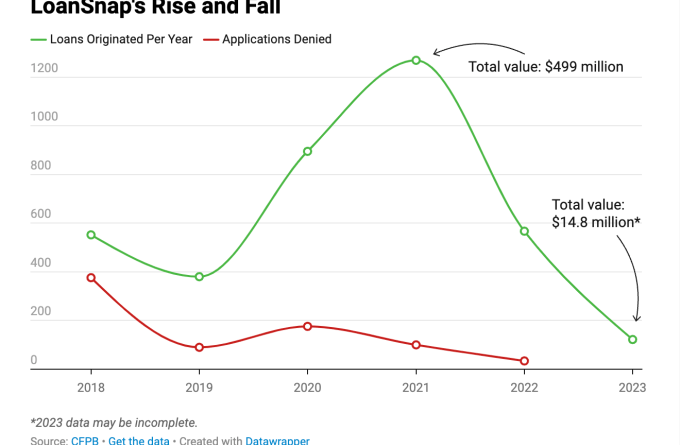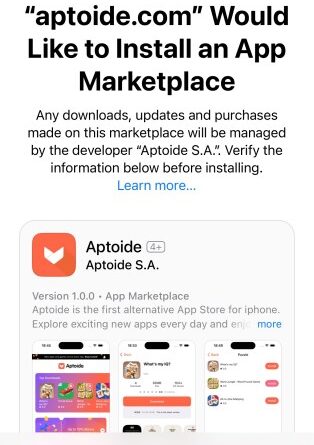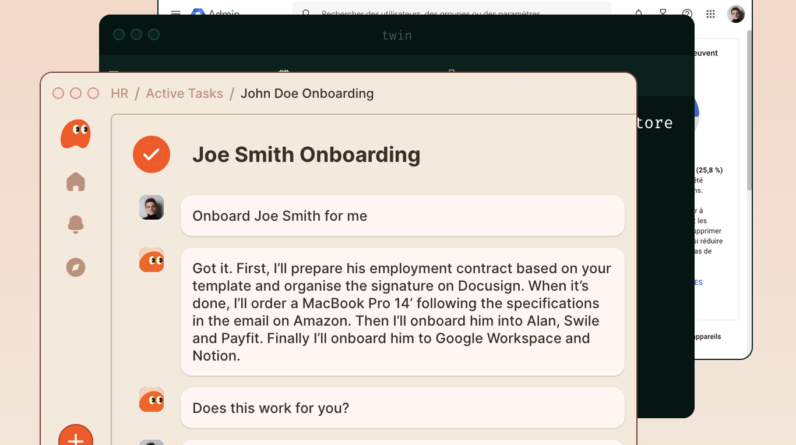
[ad_1]
We can all agree that data brokers are creepy and bad, and that in this age they have feasted upon our personal information like never before. Opting out is hard enough — which is why Optery is there to help — but as the data economy continues to evolve, we may want a more proactive management platform to stay on top of it — which is what Optery is hoping to build.
I met Optery’s co-founder and CEO, Lawrence Gentilello, when he was pitching on our Showcase Stage last September at Disrupt. The short presentations there were always teasers, and in Optery’s case I wanted to know more about how they moved the ball past existing opt-out helpers like DeleteMe and PrivacyBee. Then I forgot (Disrupt is a lot) and fortunately they reminded me just as they were about to add $2.7 million to their seed funding.
If you’re not familiar, these are services that reach out to the dozens — in fact, hundreds — of data brokers out there, companies that hoard whatever data they can find about you and sell it to whoever wants it. Getting yourself and your data off of them is often an exercise in frustration (though if you want to try, Yael’s list is the best), so these companies offer opt-out as a service, usually in freemium form.
Optery is no different there: you sign up for free, and an hour or two later you get a report telling you the brokers it has found your data in. This report includes deep links and instructions on how to opt out, as well as screenshots of the info itself so you know what they have. I tested it out and it caught nearly 50 more than what I had already had cleared out with DeleteMe.
You can then pay a monthly or yearly fee to have Optery automatically opt you out and then stay vigilant and pick your data off whenever it appears out there. It seemed to work very well for me and the experience was solid — PCMag has a full review and comparison if you’re curious how it stacks up.
When I caught up with Gentilello, he explained that the arms race between consumers and data brokers has tipped in favor of the latter. There are just too many — hundreds, with more popping up regularly — and their opt-out rules vary widely in method and effectiveness.
“The unscrupulous ones will take any opportunity to add you back in. If you don’t live in a state with a privacy law, you literally have no right to opt out, which is pretty sad and crazy in this day and age,” he said. “When we launched a year and a half ago, we covered 150 sites; now we cover about 240. If you’d cancelled, you’d have missed out on like a hundred sites. So the ongoing maintenance model is really necessary if you want to stay off.”
While not everyone wants or needs this, it’s important that consumers have a powerful option or two at their disposal. Gentilello noted that just before talking with me, he had been on a call with a nonprofit that works with victims of domestic violence: “In those cases those victims are living in fear, trying to wipe away any evidence of where they moved to; for them, it’s a matter of safety.”
The company has taken a tech-first approach, creating a patented internal search engine and crawler that evades data brokers’ anti-bot systems and finds information that they try to keep off Google and other big engines. That lets them find more and also give before and after screenshots for proof.

The Optery founding crew. Image Credits: Optery
But Gentilello said that’s just the first step of he believes could be an essential new category of service.
“What we’re building goes far beyond just removing your address and phone number from the internet — it’s a data rights management platform,” he said. “With the rise of AI and its voracious appetite for data, and companies using any data they can get their hands on… that’s not how it should be in the future. Consumers need a platform where they can dictate what data can and can’t be used by these companies. They need to be able to tell companies, ‘the information you have on me, and that I have ownership over, I want to tell you what you can and cannot do with that.’ ”
To move towards that future platform, Optery just raised $2.7 million in new seed funding, raising its total investment to $6 million. “This is giving us the power to build out the team and this data management platform,” Gentilello said. The round was led by Bayhouse Capital, with participation from Global Founders Capital, Goodwater Capital, Pioneer Fund, Soma Capital, TRAC, Y Combinator and others.
[ad_2]
Source link






